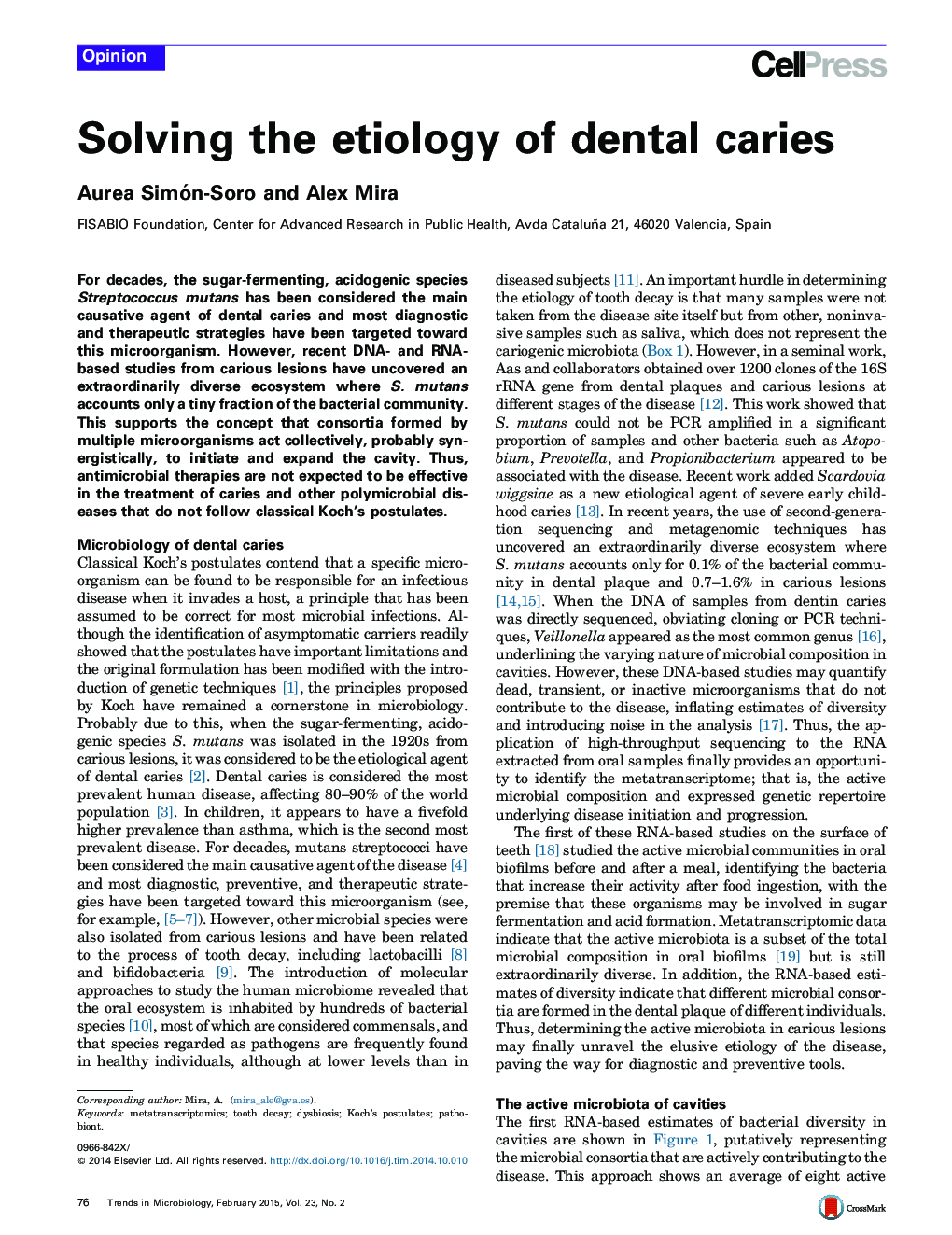| Article ID | Journal | Published Year | Pages | File Type |
|---|---|---|---|---|
| 3421872 | Trends in Microbiology | 2015 | 7 Pages |
•Dental caries is a polymicrobial disease caused by various consortia.•Caries is caused by pathobionts present at low levels under healthy conditions.•Tooth decay is a tissue-dependent process of varying etiology.•Polymicrobial diseases, including dental caries, are not infectious.
For decades, the sugar-fermenting, acidogenic species Streptococcus mutans has been considered the main causative agent of dental caries and most diagnostic and therapeutic strategies have been targeted toward this microorganism. However, recent DNA- and RNA-based studies from carious lesions have uncovered an extraordinarily diverse ecosystem where S. mutans accounts only a tiny fraction of the bacterial community. This supports the concept that consortia formed by multiple microorganisms act collectively, probably synergistically, to initiate and expand the cavity. Thus, antimicrobial therapies are not expected to be effective in the treatment of caries and other polymicrobial diseases that do not follow classical Koch's postulates.Video Abstract To view the video inline, enable JavaScript on your browser. However, you can download and view the video by clicking on the icon belowHelp with MP4 filesOptionsDownload video (48033 K)
